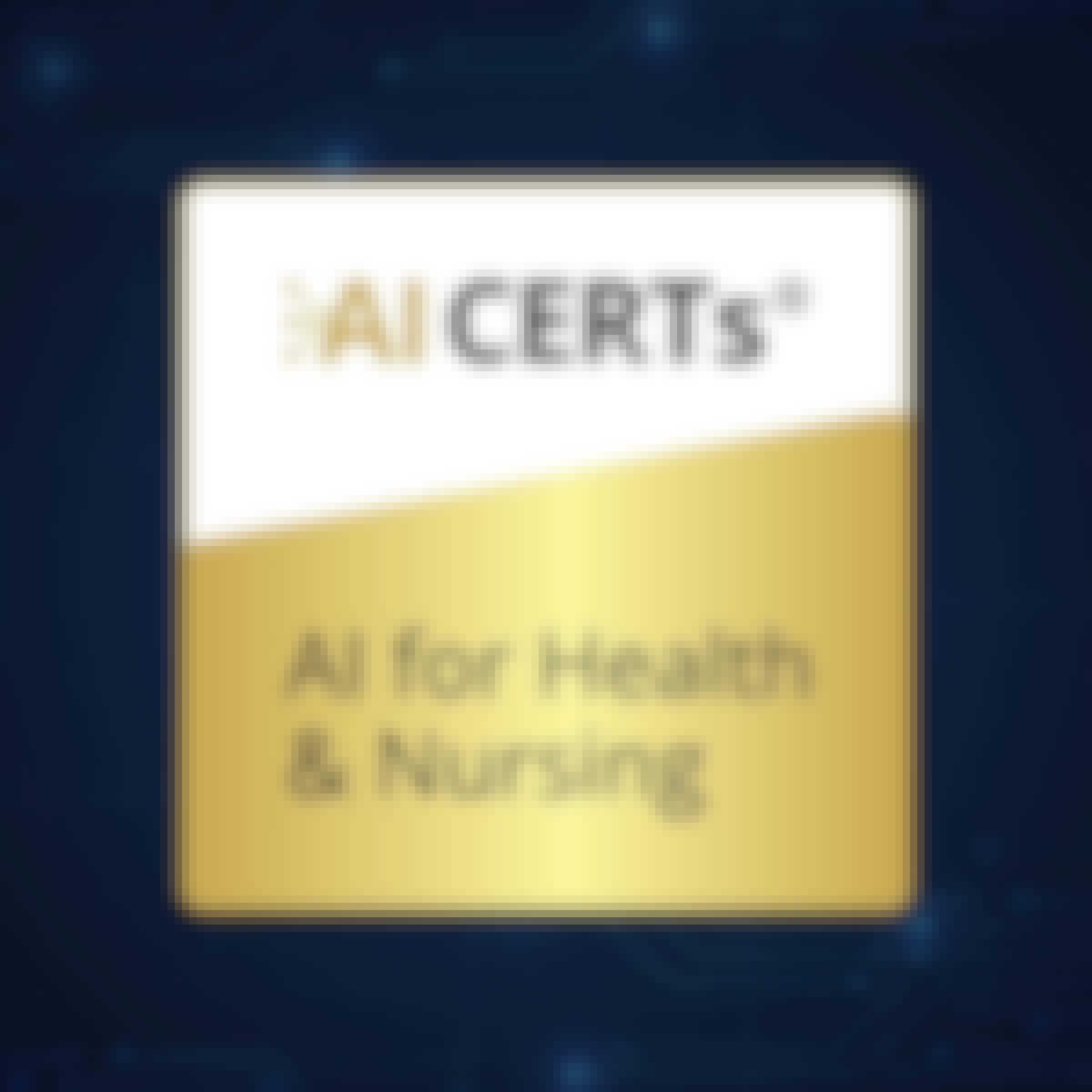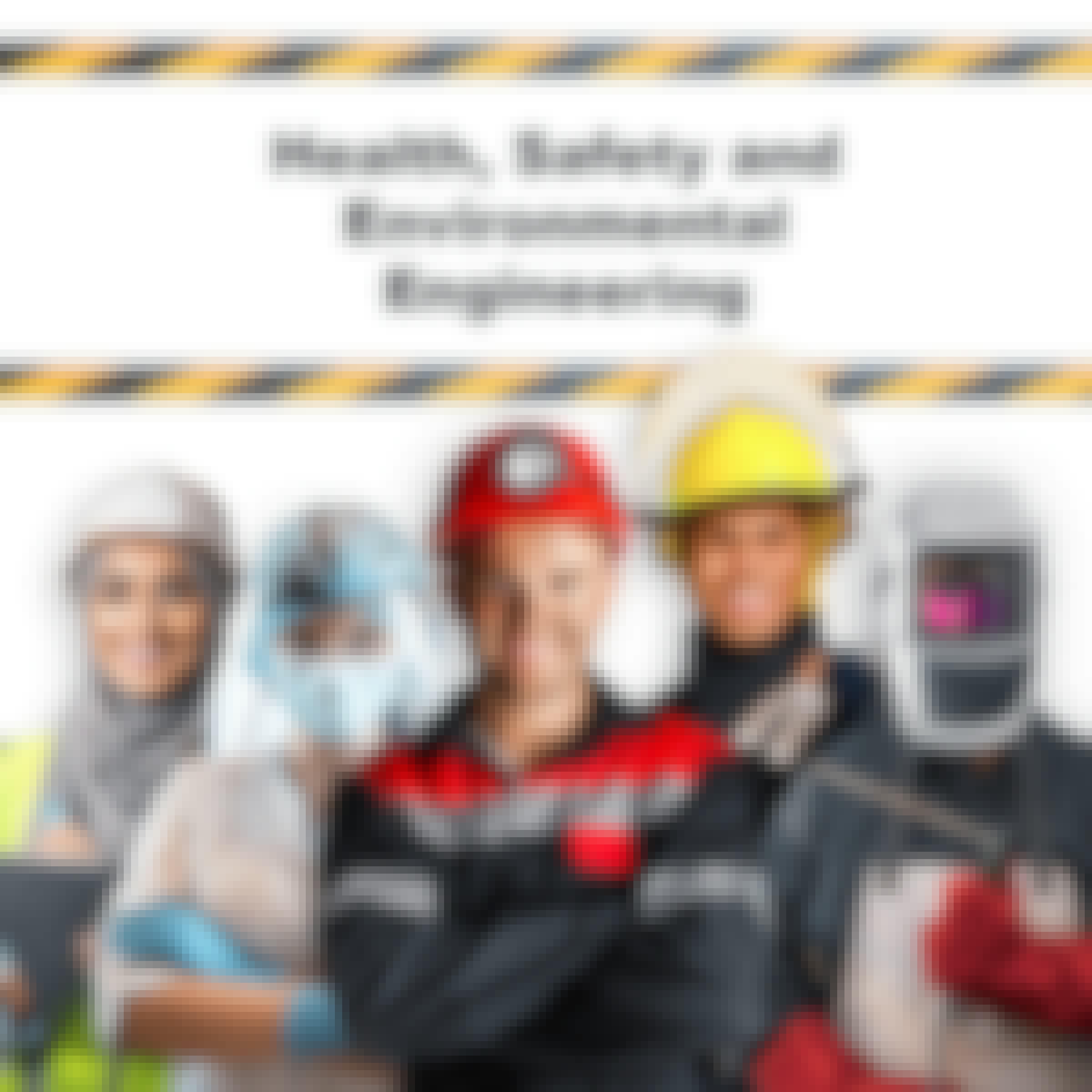- Browse
- Patient Safety
Patient Safety Courses
Patient safety courses can help you learn risk assessment, incident reporting, root cause analysis, and effective communication strategies. You can build skills in developing safety protocols, conducting safety audits, and implementing quality improvement initiatives. Many courses introduce tools like incident management systems and safety culture assessments, that support applying these skills in healthcare settings.
Popular Patient Safety Courses and Certifications
 Status: NewNewStatus: Free TrialFree TrialU
Status: NewNewStatus: Free TrialFree TrialUUniversity of Colorado System
Skills you'll gain: Responsible AI, Agentic systems, Data Ethics, Agentic Workflows, Data Governance, AI Enablement, Health Systems, Health Informatics, Machine Learning Algorithms, Artificial Intelligence, Digital Transformation, Healthcare Industry Knowledge, Generative AI Agents, Machine Learning, Model Evaluation, Health Technology, Applied Machine Learning, Health Information Management, Information Technology, Information Systems
4.3·Rating, 4.3 out of 5 stars23 reviewsBeginner · Specialization · 3 - 6 Months
 Status: PreviewPreviewT
Status: PreviewPreviewTThe University of Edinburgh
Skills you'll gain: Anesthesiology, Post-Anesthesia Care Unit, Pre-Anesthetic Assessment, Pain Management, Patient Education And Counseling, Stress Management, Preventative Care, Perioperative Care, Operating Room (OR), Clinical Practices, Patient Positioning, Clinical Nutrition, Behavioral Health, Patient Observation, Behavior Management, Long Term Care
5·Rating, 5 out of 5 stars40 reviewsIntermediate · Course · 1 - 4 Weeks
 Status: Free TrialFree TrialU
Status: Free TrialFree TrialUUniversity of California, Davis
Skills you'll gain: Data Integration, Health Informatics, Data Dictionary, Health Systems, Metadata Management, Health Care, Data Mapping, Healthcare Industry Knowledge, Value-Based Care, Health Information Management, Taxonomy, Care Coordination, Data Literacy, Clinical Data Management, ICD Coding (ICD-9/ICD-10), Data Quality, Medical Terminology, Big Data, Interoperability, Data Storage
4.4·Rating, 4.4 out of 5 stars130 reviewsIntermediate · Course · 1 - 4 Weeks
 Status: PreviewPreviewS
Status: PreviewPreviewSShanghai Jiao Tong University
Skills you'll gain: Chronic Diseases, Cardiology, Blood Pressure, Geriatrics, Home Health Care, Preventative Care, Care Management, Nutrition and Diet, Exercise Therapy, Patient Education And Counseling, Medication Therapy Management
4.8·Rating, 4.8 out of 5 stars36 reviewsMixed · Course · 1 - 3 Months
 Status: Free TrialFree TrialU
Status: Free TrialFree TrialUUniversity of Colorado System
Skills you'll gain: Sustainable Business, Corporate Sustainability, Sustainable Development, Environmental Social And Corporate Governance (ESG), Supply Chain Management, Sustainability Standards, Sustainability Reporting, Energy and Utilities, Occupational Safety And Health, Water Sustainability, Environmental Issue, Climate Change Mitigation, Water Resource Management, Key Performance Indicators (KPIs), Cost Benefit Analysis, Return On Investment, Goal Setting
4.7·Rating, 4.7 out of 5 stars107 reviewsBeginner · Course · 1 - 3 Months
 Status: PreviewPreviewU
Status: PreviewPreviewUUniversity of Cape Town
Skills you'll gain: Lifelong Learning, Family Support, Disabilities, Working With Children, Caregiving, Training Programs, Human Learning, Patient Education and Support, Special Education, Child Development, Advocacy, Curriculum Planning, Care Coordination, Instructional Strategies
4.8·Rating, 4.8 out of 5 stars193 reviewsBeginner · Course · 1 - 4 Weeks
 Status: PreviewPreviewT
Status: PreviewPreviewTThe University of Sydney
Skills you'll gain: Health Technology, Health Informatics, Health Care, Health Systems, Electronic Medical Record, Care Coordination, Clinical Informatics, Telehealth, Health Information Management, Patient Education and Support, Interoperability, Patient-centered Care
4.6·Rating, 4.6 out of 5 stars336 reviewsMixed · Course · 1 - 3 Months
 Status: NewNewStatus: PreviewPreviewA
Status: NewNewStatus: PreviewPreviewAAI CERTs
Skills you'll gain: Health Informatics, Nurse Education, Generative AI Agents, Clinical Informatics, Nursing Process, Clinical Data Management, Nursing, Healthcare Ethics, Nursing Care, Generative AI, Responsible AI, Nursing Practices, Health Care, Artificial Intelligence, Artificial Intelligence and Machine Learning (AI/ML), Healthcare Industry Knowledge, Basic Patient Care, Business Acumen, Physiology, Business
Intermediate · Course · 1 - 3 Months
 Status: NewNewStatus: Free TrialFree TrialK
Status: NewNewStatus: Free TrialFree TrialKKhalifa University
Skills you'll gain: Environmental Management Systems, Environment Health And Safety, Environmental Monitoring, Environmental Regulations, Hazardous Waste Operations And Emergency Response Standard (HAZWOPER), Environmental Engineering, Environmental Science, Emergency Response, Regulatory Compliance, Hazard Analysis, Sustainability Standards, Risk Management, Waste Minimization
4.9·Rating, 4.9 out of 5 stars58 reviewsBeginner · Course · 1 - 4 Weeks
 Status: Free TrialFree TrialJ
Status: Free TrialFree TrialJJohns Hopkins University
Skills you'll gain: Primary Care, Health Equity, Community Health, Health Policy, Public Health, Health Disparities, Health Promotion, Preventative Care, Social Determinants Of Health, Health Systems, Case Studies
4.7·Rating, 4.7 out of 5 stars283 reviewsMixed · Course · 1 - 3 Months
 Status: PreviewPreviewU
Status: PreviewPreviewUUniversidad Nacional Autónoma de México
Skills you'll gain: Cavity Prevention, Dental Care, Dental Procedures, Oral Health, Oral Hygiene, Treatment Planning, Diagnostic Tests, Risk Analysis, Clinical Assessment
4.8·Rating, 4.8 out of 5 stars309 reviewsBeginner · Course · 1 - 4 Weeks
 Status: NewNewStatus: Free TrialFree Trial
Status: NewNewStatus: Free TrialFree TrialSkills you'll gain: Electrical Safety, Desktop Support, System Support, Technical Documentation, Problem Management, Debugging, Safety and Security, Technical Support, Hardware Troubleshooting
Beginner · Course · 1 - 4 Weeks
Searches related to patient safety
In summary, here are 10 of our most popular patient safety courses
- AI for Healthcare Systems: University of Colorado System
- Animal Welfare in the Clinic: The University of Edinburgh
- Healthcare Data Literacy: University of California, Davis
- 常见慢性病的健康管理: Shanghai Jiao Tong University
- Sustainable Business: Big Issues, Big Changes: University of Colorado System
- Severe to Profound Intellectual Disability: Circles of Care and Education: University of Cape Town
- eHealth: More than just an electronic record: The University of Sydney
- AI for Health & Nursing: AI CERTs
- Environmental Protection and Sustainability: Khalifa University
- Health for All Through Primary Health Care: Johns Hopkins University










